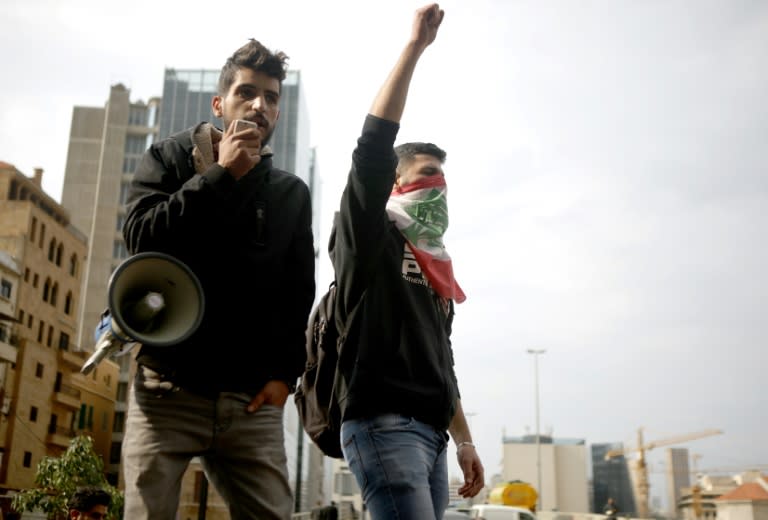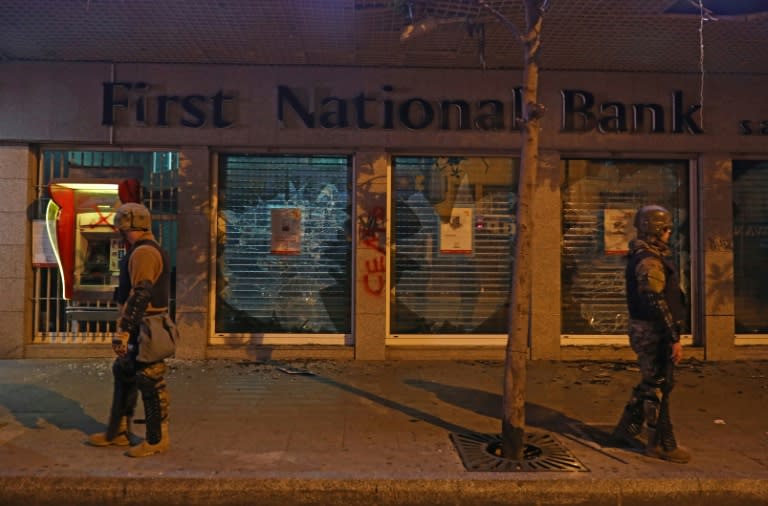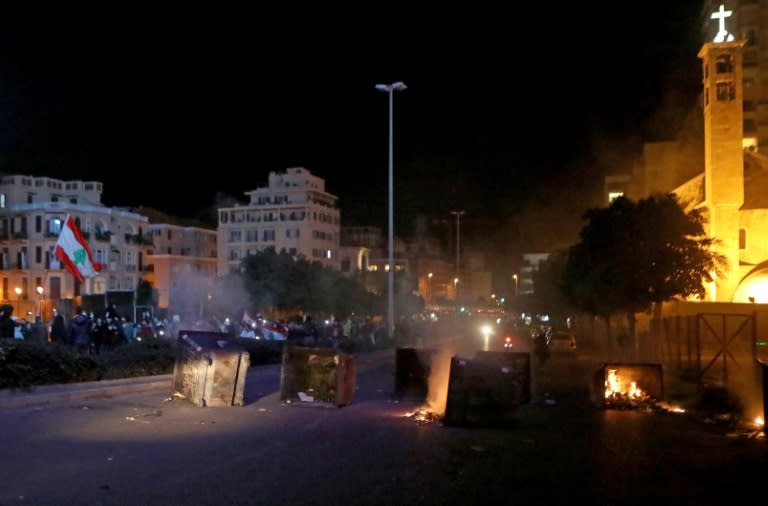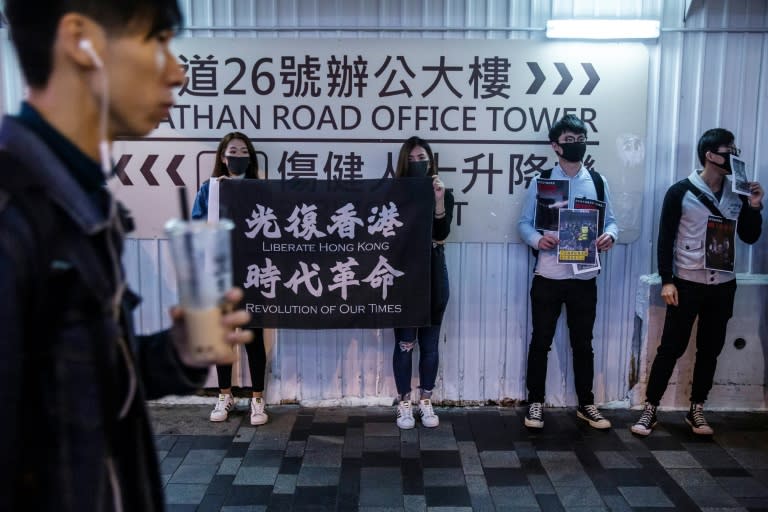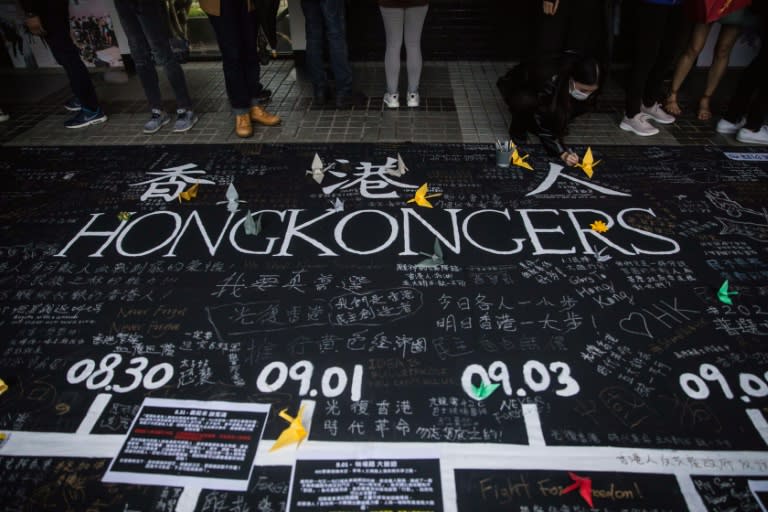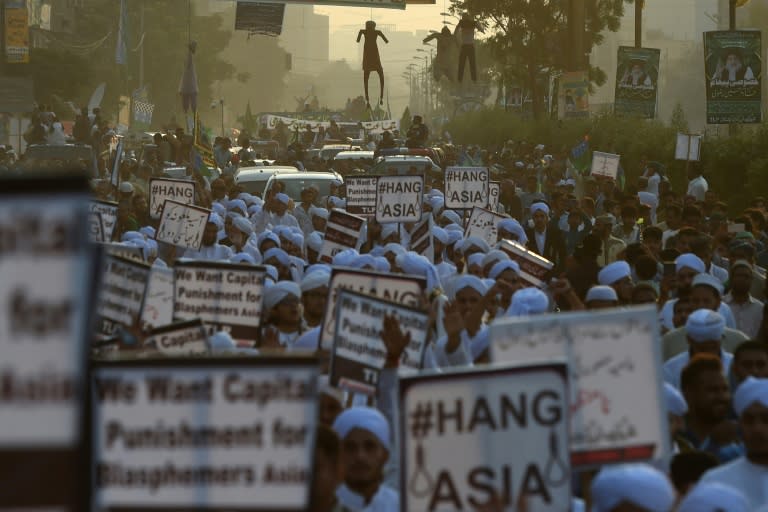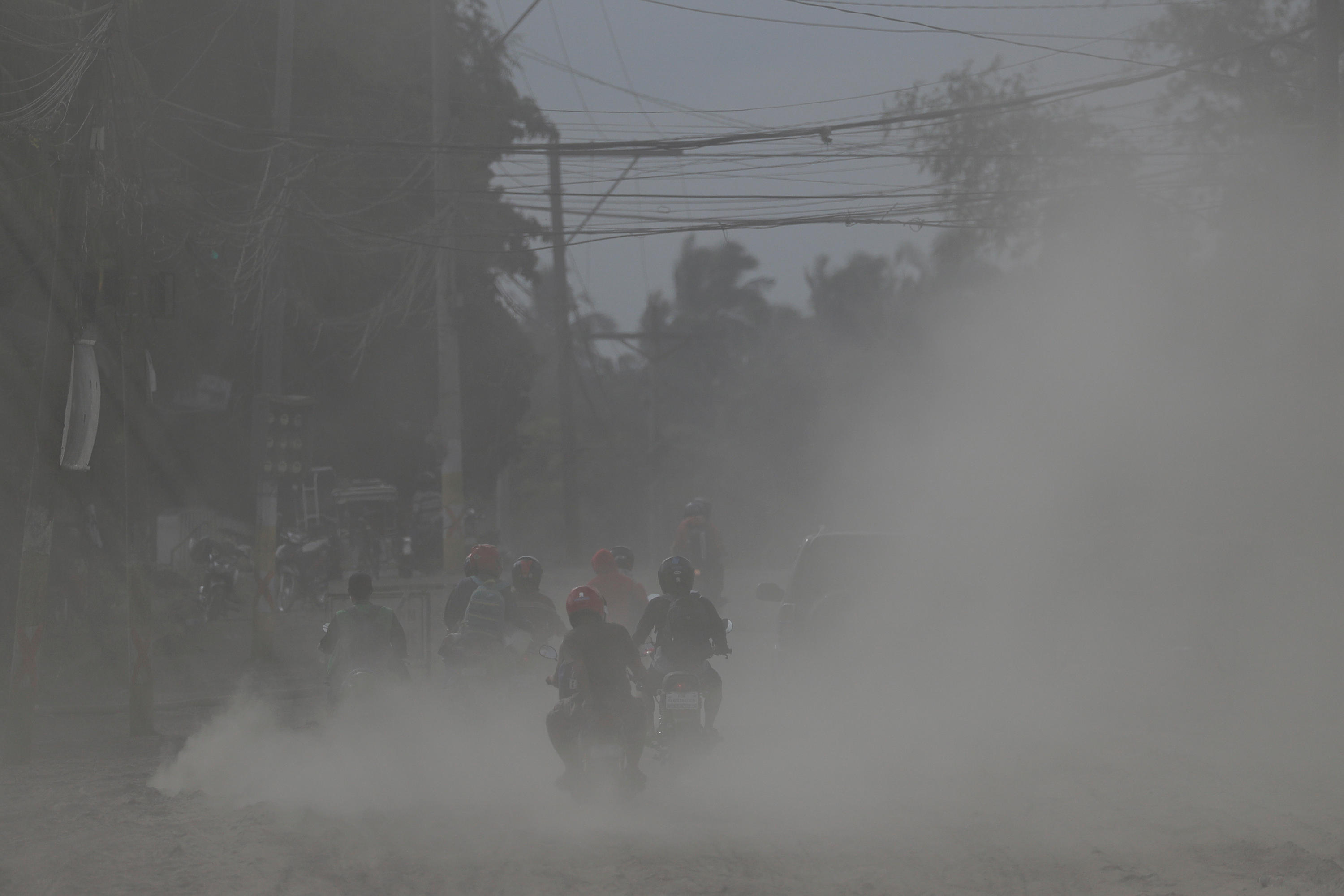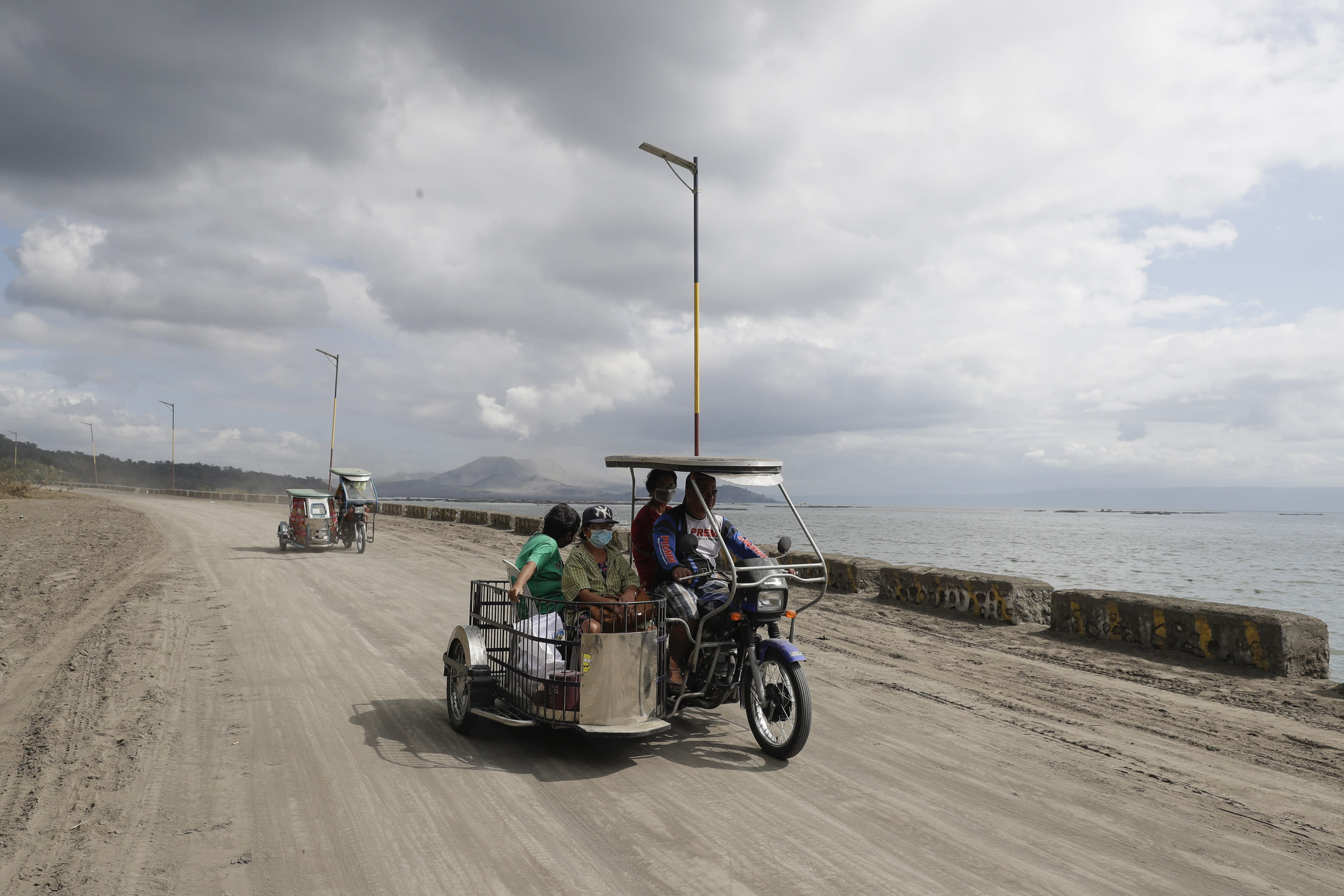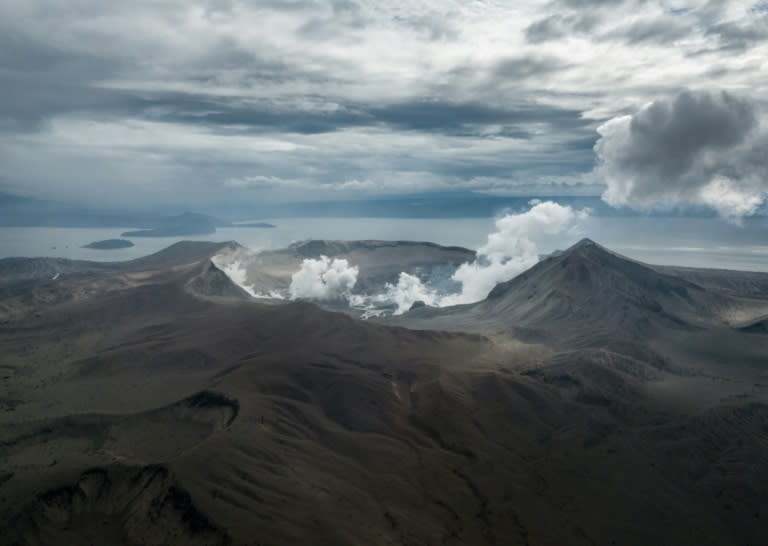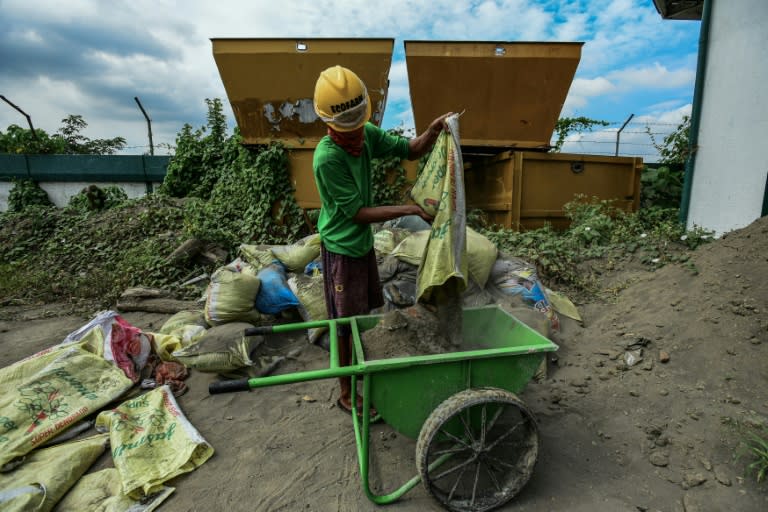After leaving Manitoba and crossing into U.S., he appeared to become target of a murder plot he helped plan

FBI officers have arrested more alleged members of a racially motivated and violent extremist group that a former Manitoba reservist has been accused of recruiting for — and court documents tell a chilling tale that includes plans to murder a married couple and overthrow the U.S. government.
In separate sweeps Friday, American law enforcement arrested three men in Georgia and another in Wisconsin.
The arrests came just one day after three alleged members of The Base were arrested in Delaware and Maryland — including 27-year-old Patrik Mathews. The Manitoba man had been missing for nearly five months, ever since he was accused of recruiting for a global neo-Nazi group, while at the same time serving in Canada's army reserves.
Mathews is believed to be connected to the group arrested in Georgia, based on an affidavit used to secure the arrest warrants, which was released by the Floyd County police.
It describes an unnamed member of The Base who "crossed into the United States illegally." That detail, along with others in the affidavit, match the description of Mathews from the FBI complaint against him filed in court.
Although the document suggests the group member believed to be Mathews stayed with a Georgia cell member for months, he is later reportedly characterized as "incompetent" and "stupid" and is seen as a liability to the local group. In fact, he eventually becomes a new potential murder target.
Local police and the FBI believe the headquarters for The Base's paramilitary training camp was a home and 105-acre tract of land in Silver Creek, Ga.

That's where Luke Austin Lane, 21, was arrested on Wednesday. Michael John Helterbrand, 25, and Jacob Kaderli, 19, were scooped up shortly after. They are charged with conspiracy to commit murder and participation in a criminal gang known as The Base.
Undercover operation detailed in affidavit
The underground FBI operation began in July 2019 when an undercover agent underwent an online vetting interview for admission into The Base using an encrypted online messaging app, according to the affidavit.
The agent was admitted to the members-only chat room and was soon invited to an in-person meeting with two members of The Base later identified as Lane and Kaderli.
The next day, they were joined by two other members for firearms training.
"Based upon previous discussions with members of The Base online, the UCE (undercover employee) believed the intended purpose of those drills were to prepare for the 'boogaloo,' a term used by members of The Base to describe the collapse of the United States and subsequent race war," the affidavit states.
At the end of the training, the members posed for photos, wearing tactical gear and balaclava hoods. The photos were later used for propaganda.
In early October, the undercover agent met again at the Georgia home with Kaderli, Lane and another member of The Base "who crossed into the United States illegally" and is referred to as TB.

It's believed TB is Mathews, who was last seen in Manitoba at the end of August. Court documents filed in support of his arrest say he had met up with two members of The Base in Michigan. He was living in an apartment with one of them in Delaware when they were arrested. TB also lived with Lane in Georgia for several months before that.
During that October meeting, TB talked about a journalist believed to be Ryan Thorpe of the Winnipeg Free Press, who exposed Mathews as a Base recruiter in newspaper stories published last August.
"The TB member further characterized the journalist who doxed him as 'essentially Antifa' and others like him as enemies of The Base stating, '[A]ny engagement in anti-fascist activity will carry the death penalty,'" the affidavit reads.
A larger group of about a dozen members, including TB, met again between Oct. 31 and Nov. 3. After putting their cellphones in airplane mode, Lane allegedly told the undercover officer about a plan he and TB had been discussing, targeting members of Antifa who lived nearby.
"Lane said he decided against carrying out the plan with the TB member because he felt the TB member was incompetent and believed they would get caught," says the affidavit.
One month later, Lane told the group about a "camping trip" planned for Dec. 13. They were instructed to bring two sets of clothing, leather gloves, and firearms and ammunition.
The undercover officer arranged to meet with Lane, who told him "his plan was to kill two high-ranking Antifa members," a married couple who lived nearby.
"Lane believed killing the couple would ultimately send the right message and show that the previous actions taken by antifascists like VICTIM 1 and VICTIM 2, such as doxing white supremacists, would not continue to go unpunished," the affidavit says.
Lane told the undercover officer he believed Kaderli and Helterbrand would be "solid."
He allegedly also told the undercover officer that he wanted to kill TB and a member of The Base in Maryland because they knew about the plan to murder the couple in Georgia. He worried that they had already told a third Base member, something that could cause problems for the cell in Georgia.
The next day, the undercover officer picked up Land and Kaderli and drove them to the couple's home to do reconnaissance.
The plan was to use a "lock pick gun" to gain entrance to the front door and kill the couple with revolvers because they don't leave shell casings at the crime scene.
They planned to rent cars and use licence plates from a different state, put Vaseline on their eyebrows and eyelashes to prevent leaving evidence, and rent a cheap motel so they could shower after the murders.
At meetings later that week, they continued to solidify their plan, which included setting the victims' house on fire.
However, Helterbrand said he was getting back surgery on Dec. 27 and would need about six weeks to recover. The group later discussed carrying out their plan between Feb. 22-23.
That never happened, as FBI officers began arresting them this past week.
Autonomous cells
"Investigation of The Base indicates that various cells have a significant degree of autonomy regarding their activities, and criminal conduct is typically not centrally co-ordinated in order to foster plausible deniability among those not directly involved," the affidavit says.
That strategy can be seen in the affidavit supporting the arrest Friday of another member of The Base, Yousef Omar Barasneh in Wisconsin.
He's accused of conspiring to injure, oppress, threaten and intimidate Jewish citizens by vandalizing private property, a synagogue and a temple in two Wisconsin communities between Sept. 15-23.
"Officers saw swastikas, the symbol for The Base, and anti-Semitic words spray painted on the exterior of the building," court documents say.
Barasneh is accused of being a member of the North Central region of The Base, also known as the Great Lakes cell. Members organized an armed training session in Wood County, Wis., and posted photos on social media, according to the affidavit supporting Barasneh's arrest.
In this case, FBI officers gathered evidence during a search of two people's homes and electronic devices. According to the affidavit, the undercover officer involved in the Georgia sting saw Barasneh, who was known as "Joseph," participate in firearms training at The Base headquarters in Georgia.
Arrests ahead of pro-gun rally in Virginia
The Base was founded in July 2018 to unite white nationalists to "prepare for a violent insurgency against various targets, including the United States government and non-white majority groups," according to the affidavits.
Investigators say leadership has cautioned its members to be "as covert as possible" during this phase.
However, according to court documents, law enforcement authorities were concerned some members, including Mathews, were planning to attend a pro-gun rally at the Virginia state capitol on Monday


On Wednesday, Virginia Gov. Ralph Northam said he had received credible evidence of out-of-state "armed militia groups storming our capitol." He declared a state of emergency and imposed a temporary ban on all weapons, including firearms, around the capitol building until the day after the rally.
"Let me be clear. These are considered credible, serious threats by our law enforcement agencies," Northam said at a news conference.
Anti-fascist activists believe the arrests of members of The Base this week could galvanize like-minded people, raising concerns about a repeat of the violence that killed one person and injured 28 in Charlottesville, Va., in 2017.
"It's possible that they were going there to try to create a sense of disorder," said Joshua Fisher-Birch, a researcher at the Counter Extremism Project in New York.
"They are an accelerationist group. They want to create chaos that will help lead to the breakdown of order in the government. So in a situation like this, any disorder benefits this group."
"If they can inflame tensions whether it's between pro-firearms groups and law enforcement or between pro-firearms groups and gun control groups, this is something that really benefits them," he said.
FBI Busts Members of Neo-Nazi Group ‘The Base’ Days Before Richmond Gun Rally
Will Sommer,The Daily Beast•January 16, 2020
The FBI arrested three members of a neo-Nazi group called “The Base” on Thursday morning, days ahead of a pro-gun rally in Richmond that is attracting fringe figures and has already prompted a state of emergency declaration.
The three suspects—Brian Mark Lemley, William Garfield Bilbrough, and Canadian fugitive Patrik Mathews—face a variety of gun charges. Lemley and Bilbrough are also accused of illegally harboring Mathews, a former Canadian military reservist who fled his home country after being accused of being a recruiter for The Base. The trio is expected to face a federal judge in Maryland on Thursday afternoon.
The suspects had discussed traveling to Richmond, Virginia, for a Jan. 20 rally in front of the state Capitol to protest new gun control legislation, The New York Times reported. The rally has become a flashpoint for the fringe right, prompting Gov. Ralph Northam to declare a four-day state of emergency and ban guns from the Capitol complex.
Lemley and Mathews had allegedly built an assault rifle and amassed hundreds of rounds of ammunition before their arrest, according to the FBI. On a recording, Lemley said he had made the gun into an illegal machine gun and made plans to hide it from federal agents, according to the FBI.
“Oh oops, it looks like I accidentally made a machine gun,” Lemley, a former cavalry scout in the U.S. Army, said, according to the affidavit.
“I’m going to stow it here until next week, just in case the ATF [Bureau of Alcohol, Tobacco and Firearms] shows up tomorrow,” he told Mathews.
“Um, if they show up here, we got other problems,” Mathews replied.
Missing Canadian Bomb Expert With Neo-Nazi Ties May Be in U.S.
The Base, which is derived from the English translation of the name of radical Islamic terrorist group al Qaeda, is a white supremacist paramilitary group committed to race war. In an affidavit filed with an application for the arrest warrants, the FBI described how Base members discuss their racial terrorism plans online.
“Within The Base’s encrypted chat rooms, members have discussed, among other things, recruitment, creating a white ethno-state, committing acts of violence against minority communities (including African-Americans and Jewish-Americans), the organization’s military-style training camps, and ways to make improvised explosive devices,” the affidavit reads.
Mathews allegedly crossed into Minnesota from Canada around Aug. 19, according to the FBI. After learning that Mathews was hiding in Michigan, Lemley and Bilbrough allegedly drove from Maryland to pick him up, then allegedly drove him back to the mid-Atlantic area on Aug. 30.
On Nov. 4, according to the FBI, Mathews and Lemley rented an apartment in Delaware, according to the FBI. They ordered a part for the gun and ammunition, according to the affidavit, and made regular trips to a Maryland gun range with the functional assault rifle they had assembled. At one point, Bilbrough visited the pair, and the three allegedly discussed the Base’s membership and tried to make the hallucinogen DMT.
On Jan. 11, Lemley picked up hundreds of rounds of additional ammunition and components for body armor, according to the FBI.
FOR MORE ON PATRIK MATHEWS SEE Anti-Racist Canada: The ARC Collective
Will Sommer,The Daily Beast•January 16, 2020
The FBI arrested three members of a neo-Nazi group called “The Base” on Thursday morning, days ahead of a pro-gun rally in Richmond that is attracting fringe figures and has already prompted a state of emergency declaration.
The three suspects—Brian Mark Lemley, William Garfield Bilbrough, and Canadian fugitive Patrik Mathews—face a variety of gun charges. Lemley and Bilbrough are also accused of illegally harboring Mathews, a former Canadian military reservist who fled his home country after being accused of being a recruiter for The Base. The trio is expected to face a federal judge in Maryland on Thursday afternoon.
The suspects had discussed traveling to Richmond, Virginia, for a Jan. 20 rally in front of the state Capitol to protest new gun control legislation, The New York Times reported. The rally has become a flashpoint for the fringe right, prompting Gov. Ralph Northam to declare a four-day state of emergency and ban guns from the Capitol complex.
Lemley and Mathews had allegedly built an assault rifle and amassed hundreds of rounds of ammunition before their arrest, according to the FBI. On a recording, Lemley said he had made the gun into an illegal machine gun and made plans to hide it from federal agents, according to the FBI.
“Oh oops, it looks like I accidentally made a machine gun,” Lemley, a former cavalry scout in the U.S. Army, said, according to the affidavit.
“I’m going to stow it here until next week, just in case the ATF [Bureau of Alcohol, Tobacco and Firearms] shows up tomorrow,” he told Mathews.
“Um, if they show up here, we got other problems,” Mathews replied.
Missing Canadian Bomb Expert With Neo-Nazi Ties May Be in U.S.
The Base, which is derived from the English translation of the name of radical Islamic terrorist group al Qaeda, is a white supremacist paramilitary group committed to race war. In an affidavit filed with an application for the arrest warrants, the FBI described how Base members discuss their racial terrorism plans online.
“Within The Base’s encrypted chat rooms, members have discussed, among other things, recruitment, creating a white ethno-state, committing acts of violence against minority communities (including African-Americans and Jewish-Americans), the organization’s military-style training camps, and ways to make improvised explosive devices,” the affidavit reads.
Mathews allegedly crossed into Minnesota from Canada around Aug. 19, according to the FBI. After learning that Mathews was hiding in Michigan, Lemley and Bilbrough allegedly drove from Maryland to pick him up, then allegedly drove him back to the mid-Atlantic area on Aug. 30.
On Nov. 4, according to the FBI, Mathews and Lemley rented an apartment in Delaware, according to the FBI. They ordered a part for the gun and ammunition, according to the affidavit, and made regular trips to a Maryland gun range with the functional assault rifle they had assembled. At one point, Bilbrough visited the pair, and the three allegedly discussed the Base’s membership and tried to make the hallucinogen DMT.
On Jan. 11, Lemley picked up hundreds of rounds of additional ammunition and components for body armor, according to the FBI.
---30---
Organizers appeal ban on arms at upcoming Virginia gun rally
DENISE LAVOIE, Associated Press•January 16, 2020
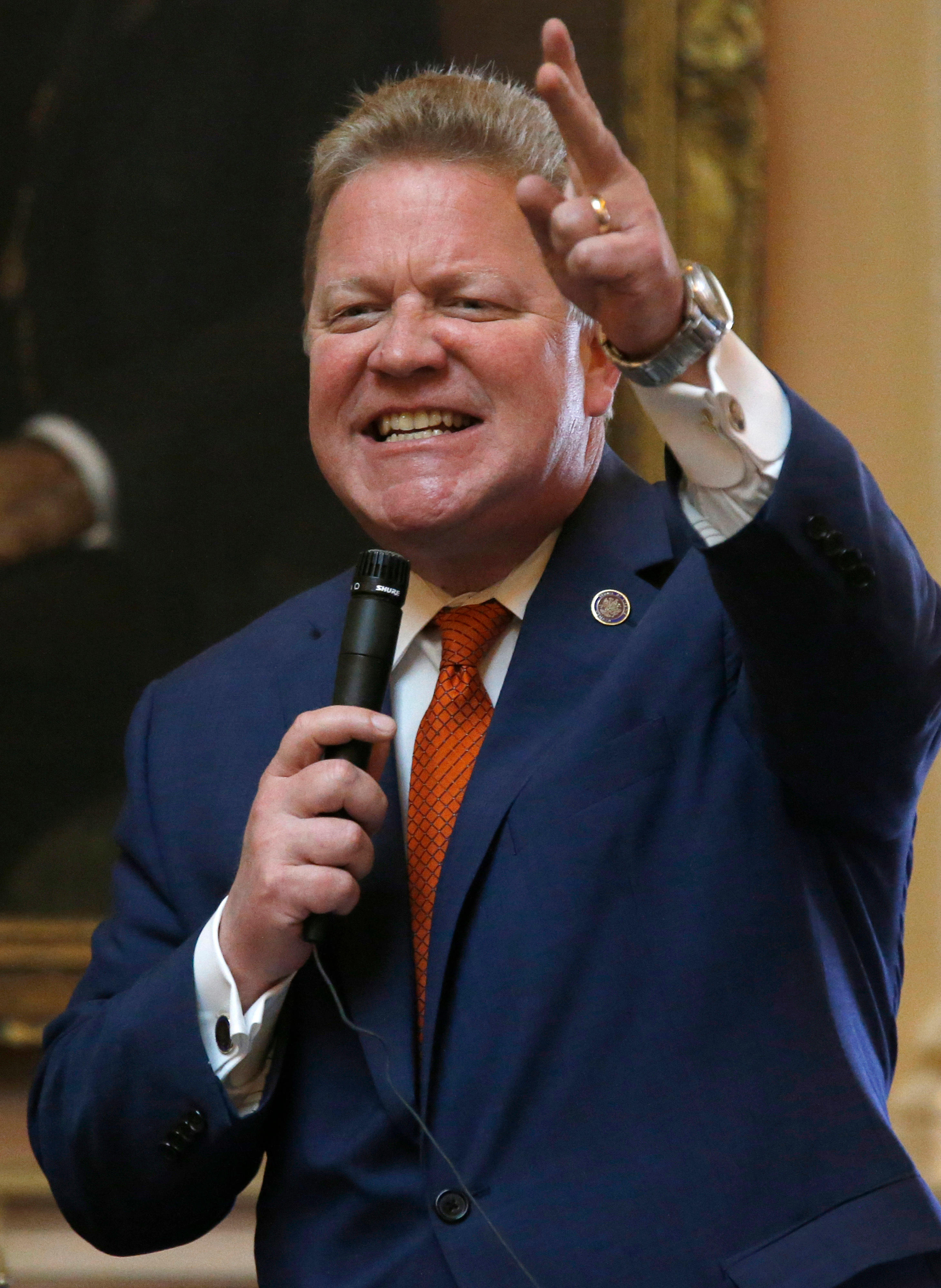
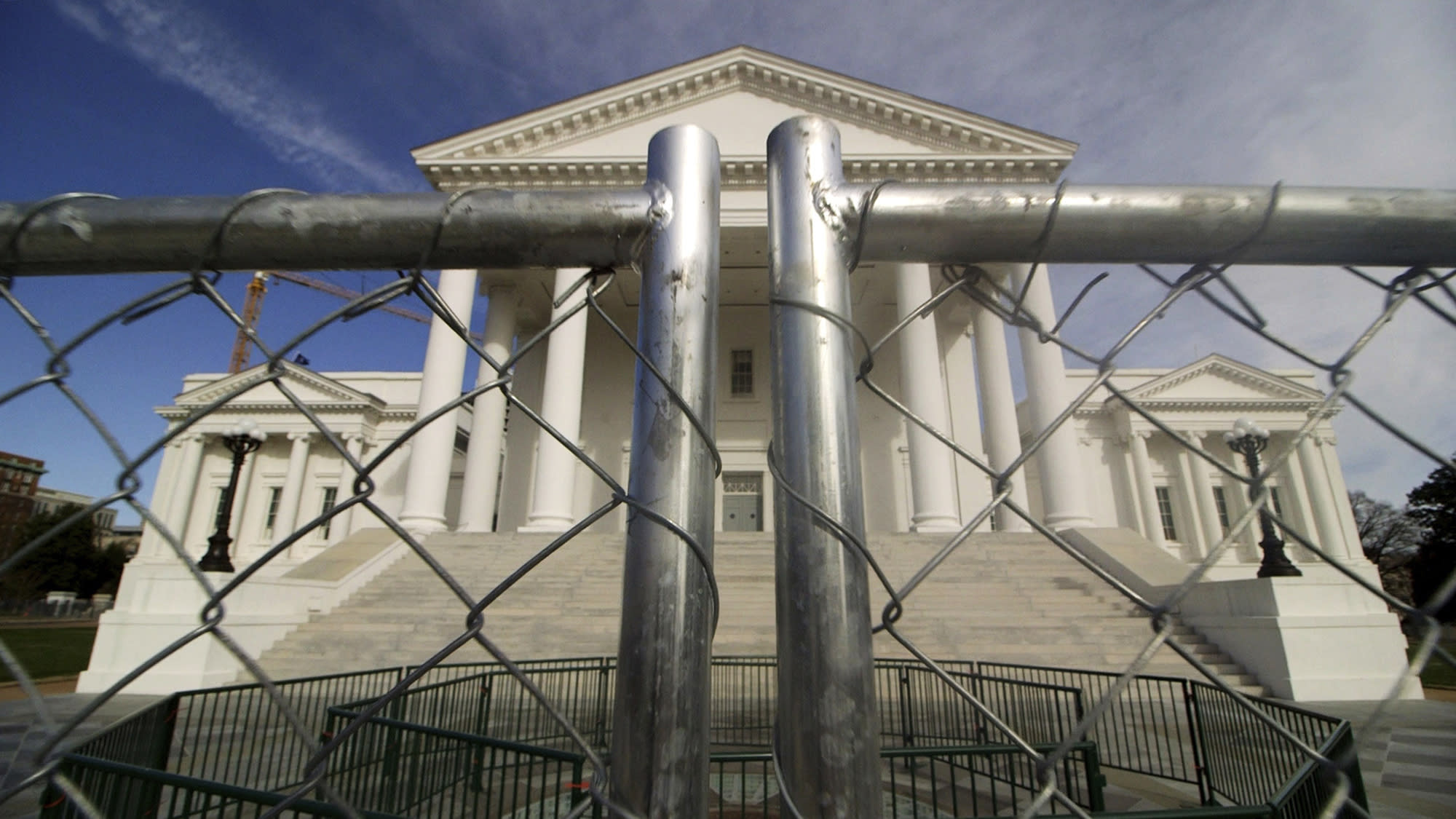
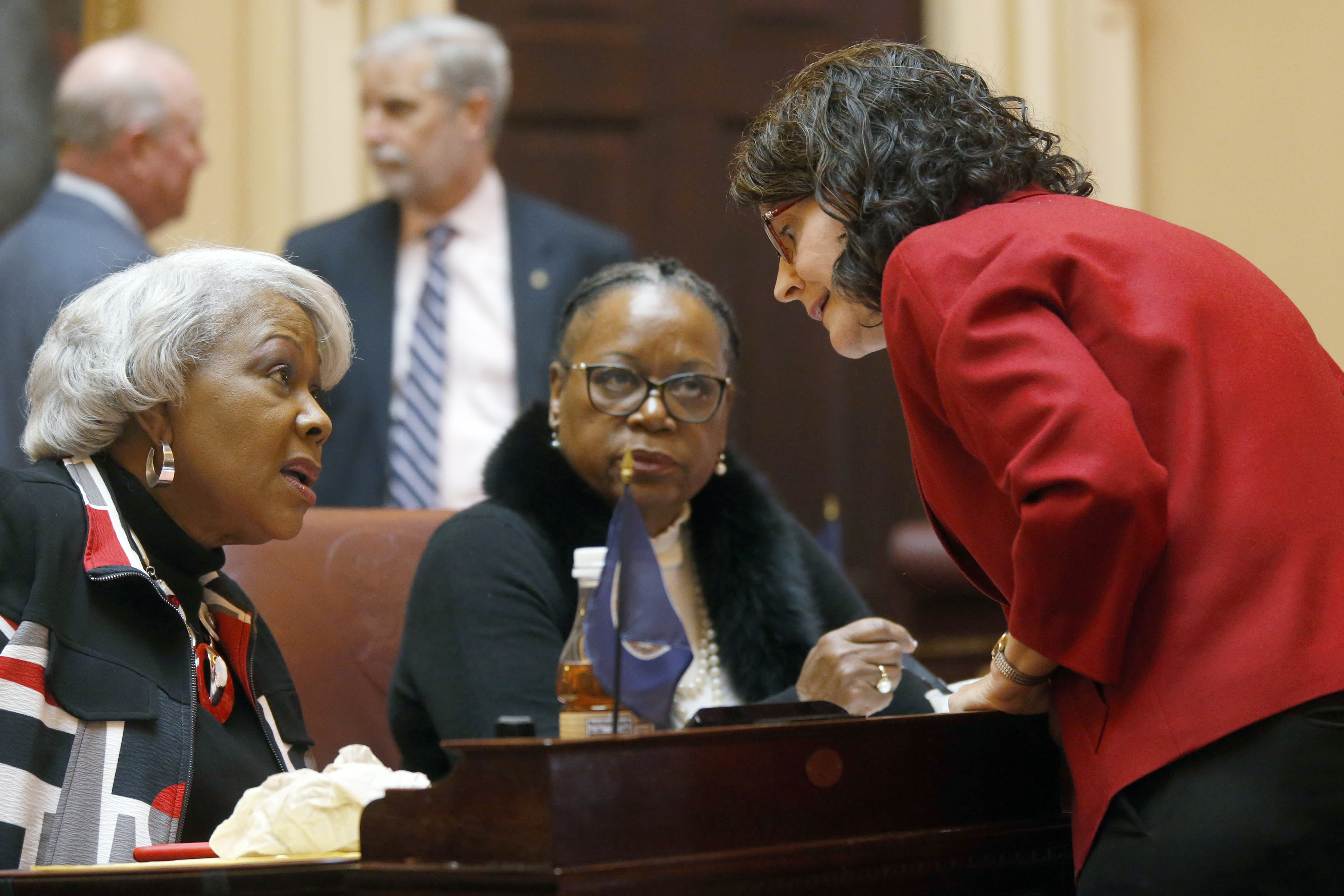
1 / 10
Virginia Legislature Gun Rights
Sen. Bill Stanley, R-Franklin, speaks in opposition to SB35, a bill relating to control of firearms by localities as it was debated in the Virginia Senate inside the State Capitol in Richmond, Va., Thursday, Jan. 16, 2020. (Bob Brown/Richmond Times-Dispatch via AP)
RICHMOND, Va. (AP) — A gun-rights group has filed an emergency appeal of a judge's ruling upholding the Virginia governor's ban on firearms at a pro-gun rally that's expected to draw thousands of gun activists to the state Capitol on Monday.
The Virginia Citizens Defense League and Gun Owners of America sought an injunction against the ban, but Judge Joi Taylor ruled Thursday that Gov. Ralph Northam has the authority under state law to take action related to "the safety and welfare" of the state. The group's lawyers then turned to the Supreme Court of Virginia.
“Without relief from this court, petitioners and thousands of other rally participants will be irreparably denied their right to bear arms,” the groups' attorneys argue in their appeal.
It was not immediately clear when the court would hear the appeal.
In her written decision, Taylor cited rulings from the U.S. Supreme Court and other courts that found the Second Amendment right to bear arms is not unlimited. Because of that, she wrote, the gun-rights groups would not "suffer an irreparable harm" sufficient to justify the injunction.
The judge's ruling came hours after the FBI in Maryland announced the arrest of three men who they said were linked to a violent white supremacist group. The three men were believed to be planning to attend the rally in Richmond, according to a law enforcement official who spoke to The Associated Press on condition of anonymity to discuss an active investigation.
Virginia's solicitor general, Toby Heytens, argued at Thursday's hearing that the governor was well within his authority to declare the state of emergency and ban weapons after law enforcement identified "credible evidence" that armed out-of-state groups planned to come to Virginia with the possible intention of participating in a "violent insurrection."
David Browne, an attorney for the gun-rights groups, argued that prohibiting rallygoers from carrying guns would violate their Second Amendment right to bear arms and their First Amendment right to free speech. Browne said carrying guns is a form of symbolic speech.
Philip Van Cleave, president of the Virginia Citizens Defense League — the gun-rights group sponsoring Monday's rally — called the judge's ruling “mind-boggling."
Northam applauded the ruling in a statement.
“I took this action to protect Virginians from credible threats of violence,” he said. “These threats are real — as evidenced by reports of neo-Nazis arrested this morning after discussing plans to head to Richmond with firearms.”
Virginia senators were debating a package of gun-control bills as the court challenges developed.
The Democrat-led Senate advanced legislation limiting handgun purchases to once a month, requiring universal background checks on gun purchases, and allowing localities to ban guns in public buildings, parks and other areas. The measures largely passed along partisan lines and will now go to the House for consideration.
Democrats said they were reasonable measures that would improve public safety while respecting the rights of law-abiding gun owners. They said the public had made clear by voting for Democrats in recent elections that new gun laws were needed.
"The citizens in this last two elections have spoken,” said Democratic Sen. Dave Marsden.
Republicans decried the legislation as an assault on the Second Amendment. They said the bill was aimed at appeasing special interest groups and donors such as Democratic presidential hopeful Michael Bloomberg. GOP senators said the new laws would entrap innocent people and do nothing to stop bad actors.
"This may be what you think is safety, but it is not,” said Republican Sen. Bill Stanley.
___
Associated Press reporters Alan Suderman in Richmond; Michael Kunzelman in College Park, Maryland; and Mike Balsamo in Washington in contributed to this report.
BACKGROUNDER
Organizers appeal ban on arms at upcoming Virginia gun rally
DENISE LAVOIE, Associated Press•January 16, 2020



1 / 10
Virginia Legislature Gun Rights
Sen. Bill Stanley, R-Franklin, speaks in opposition to SB35, a bill relating to control of firearms by localities as it was debated in the Virginia Senate inside the State Capitol in Richmond, Va., Thursday, Jan. 16, 2020. (Bob Brown/Richmond Times-Dispatch via AP)
RICHMOND, Va. (AP) — A gun-rights group has filed an emergency appeal of a judge's ruling upholding the Virginia governor's ban on firearms at a pro-gun rally that's expected to draw thousands of gun activists to the state Capitol on Monday.
The Virginia Citizens Defense League and Gun Owners of America sought an injunction against the ban, but Judge Joi Taylor ruled Thursday that Gov. Ralph Northam has the authority under state law to take action related to "the safety and welfare" of the state. The group's lawyers then turned to the Supreme Court of Virginia.
“Without relief from this court, petitioners and thousands of other rally participants will be irreparably denied their right to bear arms,” the groups' attorneys argue in their appeal.
It was not immediately clear when the court would hear the appeal.
In her written decision, Taylor cited rulings from the U.S. Supreme Court and other courts that found the Second Amendment right to bear arms is not unlimited. Because of that, she wrote, the gun-rights groups would not "suffer an irreparable harm" sufficient to justify the injunction.
The judge's ruling came hours after the FBI in Maryland announced the arrest of three men who they said were linked to a violent white supremacist group. The three men were believed to be planning to attend the rally in Richmond, according to a law enforcement official who spoke to The Associated Press on condition of anonymity to discuss an active investigation.
Virginia's solicitor general, Toby Heytens, argued at Thursday's hearing that the governor was well within his authority to declare the state of emergency and ban weapons after law enforcement identified "credible evidence" that armed out-of-state groups planned to come to Virginia with the possible intention of participating in a "violent insurrection."
David Browne, an attorney for the gun-rights groups, argued that prohibiting rallygoers from carrying guns would violate their Second Amendment right to bear arms and their First Amendment right to free speech. Browne said carrying guns is a form of symbolic speech.
Philip Van Cleave, president of the Virginia Citizens Defense League — the gun-rights group sponsoring Monday's rally — called the judge's ruling “mind-boggling."
Northam applauded the ruling in a statement.
“I took this action to protect Virginians from credible threats of violence,” he said. “These threats are real — as evidenced by reports of neo-Nazis arrested this morning after discussing plans to head to Richmond with firearms.”
Virginia senators were debating a package of gun-control bills as the court challenges developed.
The Democrat-led Senate advanced legislation limiting handgun purchases to once a month, requiring universal background checks on gun purchases, and allowing localities to ban guns in public buildings, parks and other areas. The measures largely passed along partisan lines and will now go to the House for consideration.
Democrats said they were reasonable measures that would improve public safety while respecting the rights of law-abiding gun owners. They said the public had made clear by voting for Democrats in recent elections that new gun laws were needed.
"The citizens in this last two elections have spoken,” said Democratic Sen. Dave Marsden.
Republicans decried the legislation as an assault on the Second Amendment. They said the bill was aimed at appeasing special interest groups and donors such as Democratic presidential hopeful Michael Bloomberg. GOP senators said the new laws would entrap innocent people and do nothing to stop bad actors.
"This may be what you think is safety, but it is not,” said Republican Sen. Bill Stanley.
___
Associated Press reporters Alan Suderman in Richmond; Michael Kunzelman in College Park, Maryland; and Mike Balsamo in Washington in contributed to this report.
FOR MORE ON PATRIK MATHEWS SEE Anti-Racist Canada: The ARC Collective



